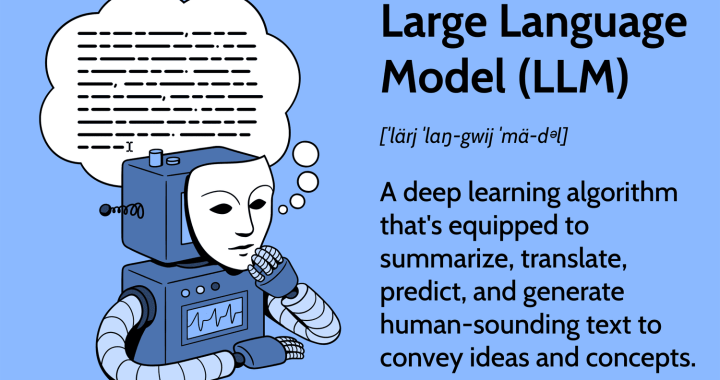I feel like someone has to slap me across the back of my head to get me to write about this. My eyes shoot for the horizon, yet I look down at my feet. I can only see the here and now, can’t imagine some other later, just yet.
Today’s inspiration comes from a video of Charlie Kaufman giving a speech to a room full of aspiring screenplay writers. What they get is nothing less than a realized individual, who stutters truth on stage. As I listened, I couldn’t help but notice the mumbling and chewing of words, beyond his message. And yet, never once for me did Kaufman lose sight of his goal: to share himself. To be himself. To say why he creates, thereby inspire the audience, and me, to be as pure as possible with our art.
The message was simple: that in a world full of bullying — at least in countries like the US where he is from and the UK where he was giving the speech, and at least in every country I’ve ever heard of — there is a massive tendency, among our children, even up through adulthood, of working really, really hard to make our peers do what we want them to. Sometimes forcefully, other times subtly, in almost all aspects of society. When that force is bare, we called it bullying. When that force is masked by flashy advertisements and loud jingles, we call it marketing. In political speeches, it’s called campaigning. And so on.
Kaufman warns us that his own industry, the movie business, has become a machine that produces mass amounts of copy-pasted products, with just one single driving purpose. He even repeats it three times: “Its only purpose, its only purpose, its only purpose . . . is to make money.” How to make us part with our money becomes the primary reflection.
Think about that for a second. It’s true about the movie industry, but also about the book industry. In conferences, we are reminded that books are products. In advertisements now, online, have you noticed, master classes are sold which teach you the tips and tricks of writing to a formula, just like everyone else. Even this app on my Wordspace marks my post as “red”, because of too many over-20-word sentences and lack of subheadings.
But is that really what we need to feel less lonely in the world? Simplify our message? Create and consume whatever someone else tells us to?
I’m thinking of a book, by a political commentator, who through attention-seeking insults and clever puns, attracted so much media attention a few years ago, that it ended up attracting even more attention, and then a book deal with an advance of $225,000. Luckily, in this case, the name-calling actually got so bad, that the author was dropped by the major publishing house. They projected that this the book could actually cause them to lose credibility, and therefore money, not increase it. But when we remember the advance, and how the house did attempt to make it digestible to readers, it’s not hard to imagine a book like that passing to the public.
If you are even a little curious, I suggest you skim the edited manuscript. It is juicy, and educational, from a certain perspective. That’s because in it you find the sharp edits of the publishing house that ended up rejecting the book, for fear gambling their investment.
If it appears that I am bashing big business a bit too hard here, I repeat that the edits are intelligent—just not enough to assuage the lunatic author, who later published his memoir himself, in its original form. For me, to read how a master editor took the time to make 300 pages of gentle suggestions, despite the aggressive author’s content, was like watching a kung fu master block with only two fingers the kicks and punches of a young student’s vicious attacks. It’s the system of promoting slander and paying bullies six-figure advances that gets me. Sure, maybe I just want an advance like that myself, but could I write as brutally as this cheater who jumps into the political ring with brass knuckles and delivers blows below the belt, just to win? Probably not.
Upon reading, you might be tempted to argue that the book really does present the individual as himself, as Kaufman advocates. But that’s like saying, of a president or of a prime minister, “He tells it like it is!” While that’s partly true, you should also remember how bullies just “tell it like it is,” poking us in the eye and in the ear and in the mouth with a wet willie, sometimes to provoke us, other times just to be mean. Dostoevsky said something in this regard, “You have no tenderness in you; only truth — and that’s not justice.” There should be tenderness and kindness first, it is clear, before telling someone the truth.
Kaufman relates a story where after watching a highly produced trailer for a new movie, he became incredibly depressed. While a part of him realized he would never make such a box office hit, making him think less of himself, another part realized he never could do the same thing, precisely because of who he is, thus making him even more depressed. That’s the danger of this kind of mass media. It tells the creative person, you better file in, just like everyone else, or else.
From my perspective, right now I am working on a story about a young man who lost his mother to drug addiction. It’s something raging in my imagination, though I have never experienced it first hand, this loss of a parent to drugs. But because I know it is a sensitive topic, and one worth exploring, I figured I should research the topic, just to contextualize the trauma I was putting down on the page.
What I found left me as depressed as Kaufman was when he saw that trailer.
The top search result of “losing mother to drugs,” probably thanks to SEO optimization, actually had nothing to do with drugs or with a story of actual loss: but a clip of a newish movie, about Magneto in a Nazi office, being told to show the commanding officer his metal magic trick. The clip runs at about three minutes. In those short minutes, Magneto, as a Jewish boy in 1930s Germany, is presented as shy, nervous, and failing to perform. So his mother is brought in. He must move the metal or lose her. He tries even harder, but still fails. Therefore, the officer shoots his mother, making Magneto go crazy, killing the guards, and moving all of the metal in the room. This impresses the officer so much that he congratulates the mutant. The boy has a lot to learn from the Nazi about harnessing his evil powers, thus the plot thickens.
But that’s it. Three minutes. All we get is a barrage of special effects and fast-paced action: Hollywood’s answer to my question “What is it like to lose a mother?” is just that, a teaser, a scene. That’s it. As if losing a mother were a plot point in a person’s life. Just a beat in a movie. Look, with a little consideration we might conclude this isn’t such a big deal, but as you consider, keep in mind that his was the most relevant, most searched for result on Google, that is to say, in the whole wide world.
We’re all guilty of pushing ourselves above others, in our jobs, in our relationships, to whittle ourselves so thin in a race to the top, achieving only one or two important things in life, such that our actions and creativity become reduced to only getting what we want, and making others give us more of it, too.
Even I, five minutes before listening to Kaufman, was reading a blog that told me what scenes are important or not for the book I am working on—not to mention I did get on YouTube “to be inspired” by Magneto. All because I thought it would make my story “more real” therefore more “relatable” therefore more of an interest to you. Yet for some reason it’s also kind of blocked me.
I think what Kaufman would say is, Don’t beat yourself up, make art meaningful by making meaningful art, be gentle, kind, and generous, even with yourself. And let go.
And so.
That said. What do I see ten years in the future? I see a few things. By then, I see a small collection of my publications in print, which will go on to inspire others to do the same, all of us writing authentically and growing kinder. More, I envision working with teachers, and students, and professors who share the common goal of maturing our self-expression as well as ourselves. And, highest of all, I feel that in ten years the world will be a better place, even if just a little bit better, because we will have learned to be more honest, and gentler and kinder.
I am willing to put in the effort. No flashy ads, no well-trimmed political speeches. Just myself. This is what I have to offer. Let’s make the world, the people around us, and ourselves, just a little bit better, in the coming decade. Yes.
…
PS: Funny how the opening sentence of this post is a plea for some small act of violence done against me. You know, I must make two confessions.
The first is I know it’s hard. What’s easier, standing up for ourselves, or giving up our lunch money? My fiancee just told me she had to give an aggressive homeless man a bill on the street, when she parked at a free spot on a public street, just so she could feel safe he wouldn’t slash her tires. If that isn’t what we’re talking about, I don’t know what is. What could she have done? What could I do to help her? What does anyone do in that situation? It’s just easier to pay, and move on, huh. Though, I would rather we banded together.
The second is a dream I had last night. I was at Chuck E Cheese with a then friend of mine from high school. We were playing the game where you have to bowl a small ball up a ramp and into one of a half dozen holes for points. I kept shooting for the corner pocket, the one with the highest points. Although I was coming closer and closer to making it, I kept missing. Suddenly an acne-nosed, aggressive guy with a nasty puss-filled mole next to his nostril pushes me aside and says it’s his turn to play. His buddy gets on the ramp and starts to play, by cheating and throwing the ball closer to the holes. I argue with the dude that I still have coins in the machine and that he should wait his turn. The ugly guy just bucks at me, telling me I won’t do anything about it. My then friend from high school, a big guy, comes to see what’s the matter. I figure, good, this is my chance. So I bump into the dude and send him crashing into my friend, who starts to argue as well. This doesn’t resolve anything however, because my friend won’t fight but this guy definitely will, and eventually he still gets me to leave the game, which he plays using the coins I had put in it . . . When I go to leave the arcade, you know how there’s a lady that checks your wrist to see if you have the same stamp as when you came in? I tell the lady checking the stamps, yo this mean guy took my turn at the game. Another coworker shakes his head at me like, it isn’t a big deal. But I look at him and say, yeah, you don’t care because you’re tall and no one bothers you. Then I turn back to the lady checking the stamps, and it finally hits me, that I was really deeply affected by this whole incident. She just hugs me, hugs me tightly. And she lets me cry in her arms. Which is, I feel in the dream, what I really needed to do. To just let go.




